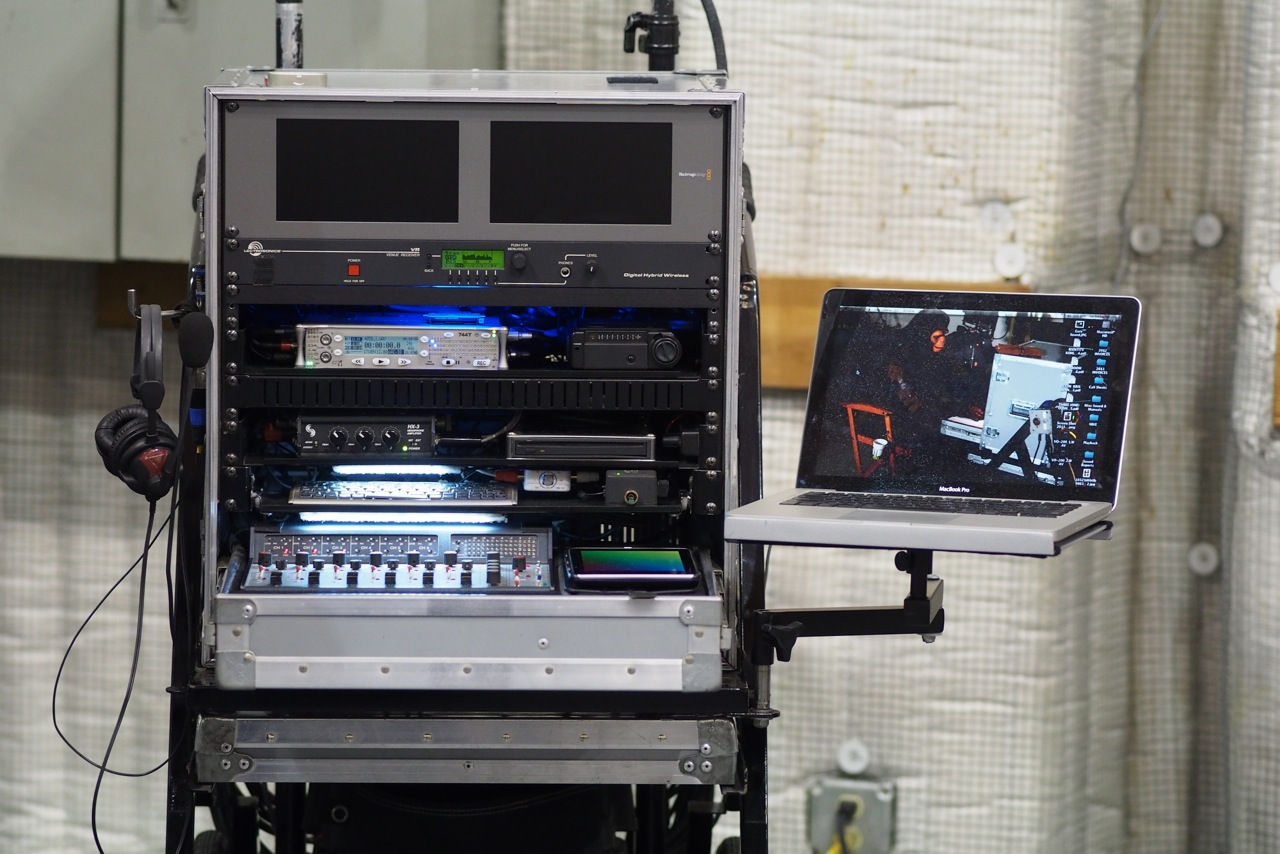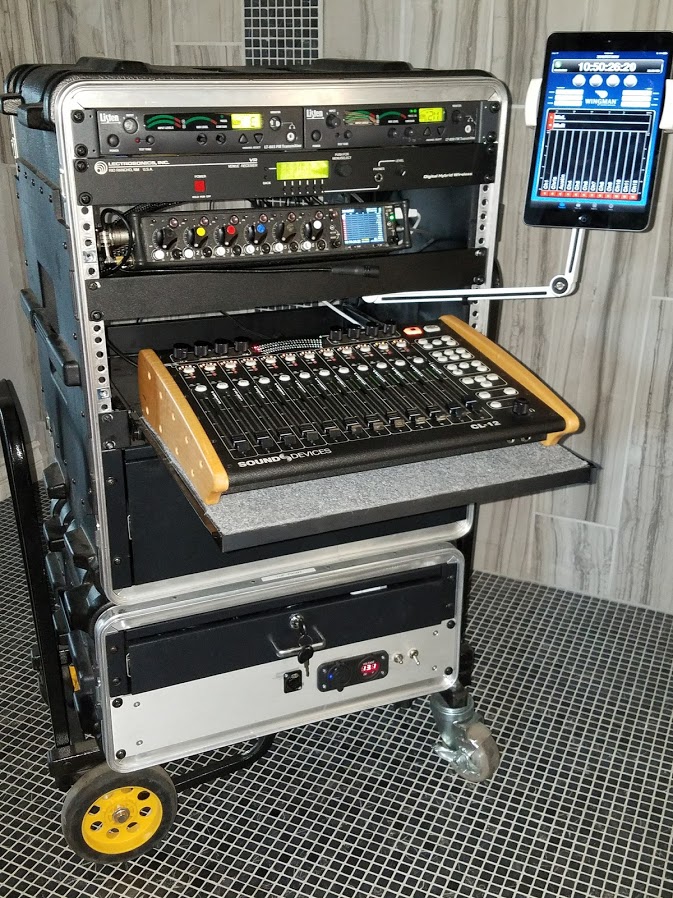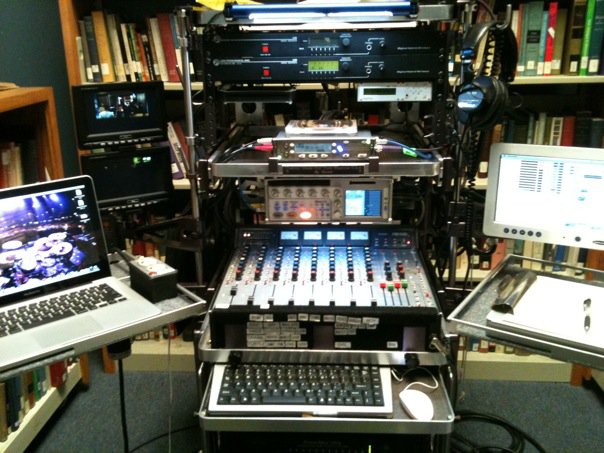Thanks for all the replies. If I don't agree with you, don't take it personally. I just don't get what you're trying to say or I've found the opposite to be true from my personal experience.
Directorik
Will you be buying a beginner makeup kit so you can know the very
basics of corrective make up?
Will you be buying a grip and lighting package so you can know how
it all works?
Will you be taking acting classes?
I have always felt that as the director I can effectively guide people
towards creating what I need by directing them. Not by knowing how
it all works.
Even after I spent 12 years in makeup effects and really knew how it all
works I never used my knowledge and experience on set when I directing
the makeup team. I know very little about audio and I know nothing at all
about costuming but I learned to guide the people who do.
You ''learned to guide the people''. So you learned on set. Or from books. Or from your network who taught you. So do you really have ''no knowledge''? Look up ''T-shaped skill set''. I believe everyone should have this. I believe you have it too.
Do you really believe that a good motivator, team leader, who never micromanages, will really make any kind of decent film with a few friends who know nothing about film or are passionate, but just starting out?
Because that is what it seems you're suggesting.
But feel free to tell me a bit more about your personal experience. I'm always open to learn. Like, what exact directions would you give your makeup team?
indietalk
That belief is often out of fear of delegating and often results in a lot of micromanaging, which is probably the most annoying thing on set.
I am just a very curious person, especially when it comes to film. I will try my best not to micromanage. It has never been my goal to learn more so I could endlessly give instructions.
My goal is to be able to instruct friends when they ask questions, or if I see something that's not right and they can't fix it on their own.
For me, it's all about the story. I don't obsess over light as my end goal. It's a tool to tell a story - to move the audience, just like cinematography, just like audio, just like every part of filmmaking. The audience will be distracted from the story if the work isn't done properly.
Instruction: Telling them exactly what they need to press, which will then achieve something on it's own.
Directing: Telling them what the result needs to be, so they can get to work to figure out what buttons to press.
Micromanaging: Giving everyone, crew and cast, instructions.
Can we agree on these definitions?
Sweetie
That's what commonly happens with cheap audio gear.
The expensive (good) stuff not only works best, it's built like a tank.
What price range are we talking about?
If it's a lot of money to you, I don't understand why you're in so much of a rush to be flippant with your money. The path to building up your network of collaborators is hard work, but if you do it right, it'll help you spend your money where it counts.
On the flip side, building up your equipment means you're less reliant upon others to supply equipment. If you're constantly shooting, it can reduce your costs over the long run.
I do get the train of thought of building up your gear. Soundies are notoriously hard to find in my area so it was the first kit I built up and spent a bunch of time gaining experience and learning the craft. I have the knack of pissing people off at the drop of a hat so having my own gear can be a bonus. Then again, I don't consider $2k a lot of money. I have a full set of gear (audio, grip, lights, camera) that'll be mostly sitting there collecting dust for the next 10 months while I'm busy focusing on motion capture and animation at work.
I wouldn't consider myself flippant with my money. In that case I would've been out getting audio recordings done now. Maybe with bad gear, but we're talking about being flippant.
Networking is very important. I do try to maintain and grow connections. With me not having much time, it's a very, very slow process. And it's also why I need gear. So I can record and learn on my own, in my own time and at my own pace. Also, you don't want to be learning sound basics while you're on set. That will never result in anything good. (Personal experience on student film where I never tested my equipment until shooting)
Thank you for understanding my perspective.
Try the "Sweetie" method. Continue to network and ask a lot of people until you get what you need. "This is what we're doing. Is this something you're interested in doing with us?" If not, move on to the next person. If the answer is no, don't waste another second on them. Life's too short to waste time on people who aren't along for the ride. Prepare for lots of rejections. It's part of the process.
It does sound like you need to volunteer and get involved with a lot of other people's productions and build up your network. If that's the case, be what everyone needs and you'll be the darling boy everyone needs. You can pick and choose which projects will help you achieve your goals best.
Haha, I'll try the Sweetie method.
And I certainly need to volunteer. I will see if I can fit something in during normal weeks, otherwise it be down to vacations weeks.
Buscando
Just curious, Pizza,
How many films have you made & when did you make them?
And why did you stop?
Thanks for asking, Buscando.
I made 3 films/movies. As in clips that were edited and all with scripts, actors and stories. 2 had a script. The other was improv. They were all with friends who weren't interested in film as much as I.
I made the first 4-5 years ago, and then about 1 a year. So the last one was around 2-3 years ago. All were for school. But I really got interested in making films. I also made approx 50 youtube videos, so I know my way around Premiere Pro. Last one was last year.
I stopped since I could only get equipment from that school. So when I had tons of time, summer vacation, I couldn't shoot. I didn't own a camera and never considering shooting with things like my phone. Looking back at it, I should've tried to keep shooting and not be scared to go out there and do it. But the past happened and you just have to learn from it and move on.
Just to give you a bit more of an idea:
I got my current camera (DSLR Nikon D3100) around 1 year ago. Never considered using it until 2 months ago or so. I shot some test phones and video in my home. I then watched like 100 youtube videos and read 20 articles to learn some basics. Got it all in my bookmarks, and sorted per category (I still learn something new every day and add it to the bookmarks for memory refreshment once I get to the part, like editing). Then decided I needed practical experience, so I wrote a script (start of the whole pre-production phase). Then I went to look for a place to shoot it. I realized such a location would cost a few thousand to set up. Making it cheaper would take away from the feel it needed to have IMO at that point.
So while thinking of locations I realized that there's a forest near me (probably cliche but whatever). I wrote 6 outlines for short stories taking place there, on my phone. I chose the easiest one so that I didn't have to write another script (since I already learned quite a bit about scripts compared to my actual experience shooting). Before actually choosing to go for that outline, I looked up some types of shots to start practicing camera settings and cinematography in the forest. I decided I may as well do a first take of the movie while practicing settings.
Now I don't have a viewfinder for when filming so it's hard to see what you're doing while filming. So, I reviewed the footage at home. Main points I found:
1) Too shaky
2) Too boring -> colors not nice, no things around
1) It's a first person shot. One shot, and that's the entire movie. At the start the camera is slowly moving forward and low, then it starts moving faster and higher until falling down again. It's likely an overdone analogy, but whatever. It's more about me learning my camera at this point.
I realized I don't need to move fast, I just need to move fast relative to the pace I move at earlier. That way it should be quite stable without a gimbal.
2) I shot that scene in a more open part of the forest. Bad choice. And the weather was very 'grey'. Nothing going on.
School, I am in second year of college, got in the way, so I'm yet to redo the take or judge all the clips from the settings test. But... I did have some time to see how far I could make the current clip work with audio and editing added. I then realized I needed ambient sound, and footsteps. I looked some up online, but the ambient sound was way too noisy and I remembered the other time I tried to sync footsteps from a sound effect downloaded online. Didn't work. I also realized I would need audio gear for future project.
So I started this thread.
Alcove Audio
Thank you for that advice. So to clarify, you would say that $200-300 dollar gear fits in the range of gear with great resell value?
My personal position is that directors should direct, not be running sound, working the camera, setting up lights, whatever. The directors job is to inspire a group of other creative people to share their vision (literally and figuratively).
However, why do your learning on your own dime/time? Work on every project you can fit into your schedule. That's where you can do a lot of your learning and it won't cost you a Euro. You'll help place lighting, run cables, assist with sound, and dozens of other jobs on a small set. Another important benefit is that you start building a network of people with whom you may want to work when you're ready to do your own projects. And many of them may already have or have access to the equipment that you need.
Right, so you say what the result needs to be instead of saying what they need to do. Or potentially, you tell them all about the story and the feel (sort of the same as result but told in a different way).
I will wait before spending. Get the book. I will make sure to get some experience on other projects and see if we can work together more often. Once I have that, and I still feel like I need my own gear, I will get it.







 )
)